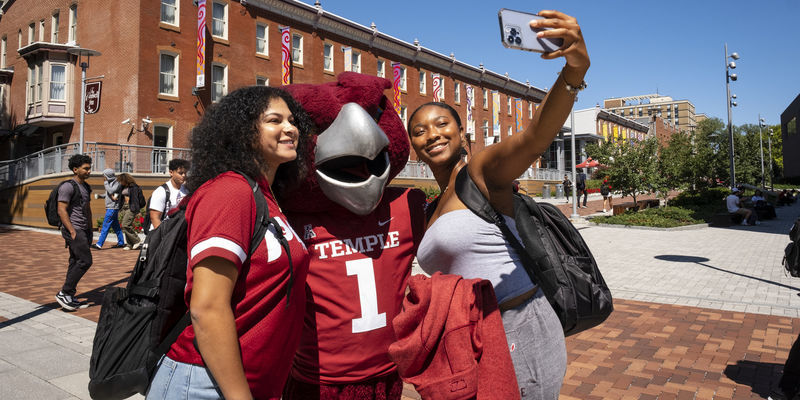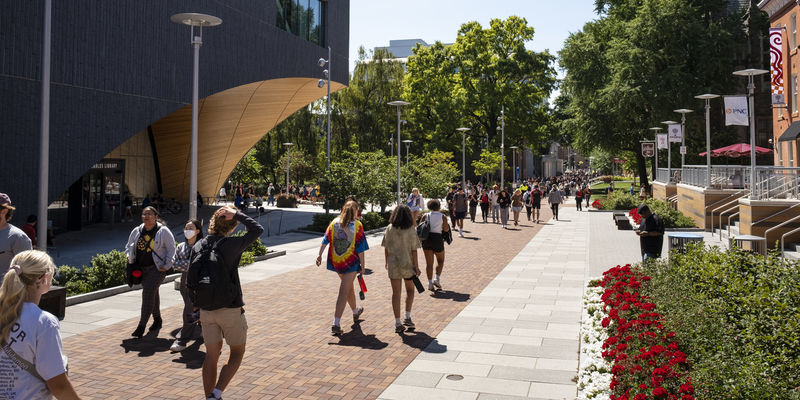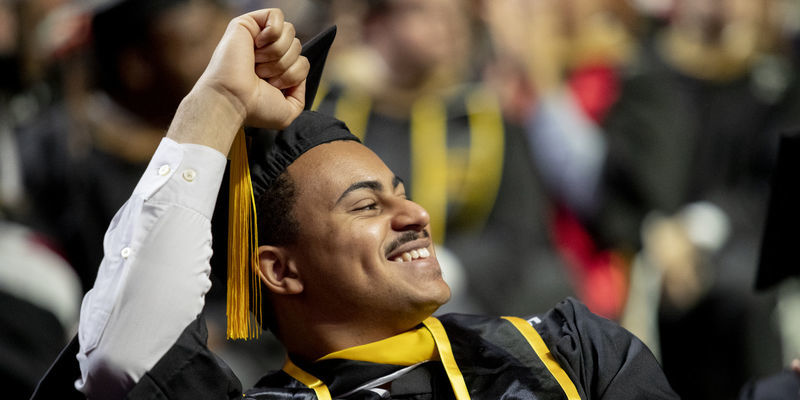Temple launches esports certificate program for students
Students can complete an esports certificate within the School of Sport, Tourism and Hospitality Management. In addition, Temple has an esports club, a competitive gaming-based student organization that hosts over a dozen competitive teams in several games.
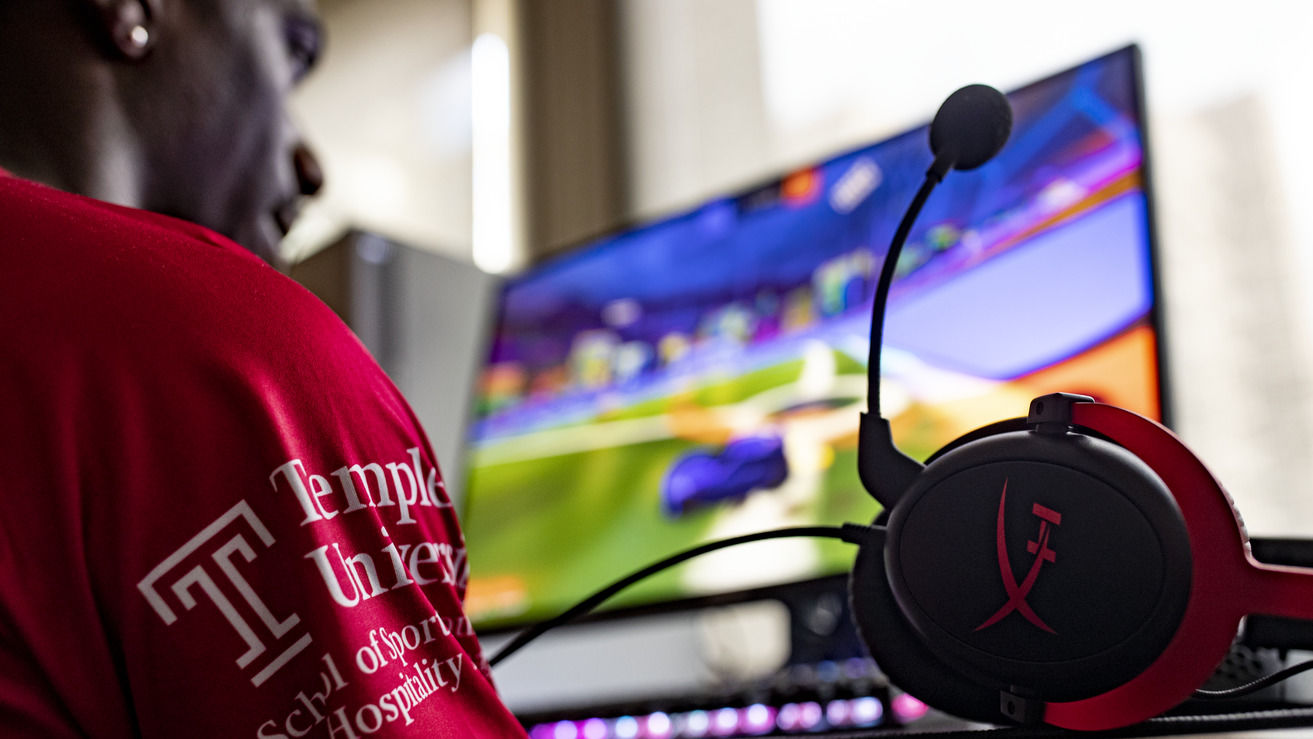
In recent years, esports (electronic sports), the form of organized competitive video gaming, has emerged from a niche hobby to a popular and rapidly growing industry fueled by both participants and spectators alike.
Temple University now offers an esports certificate program within the School of Sport, Tourism and Hospitality Management, which has been designed for students interested in learning the business and managerial elements of esports.
The five-course program focuses on industry trends, legal challenges, unique topics in sport and recreation management, social media management, and fan engagement and revenue production. Students learn from industry professionals and faculty with knowledge of esports to apply established sports management techniques and skills to the esports competition space.
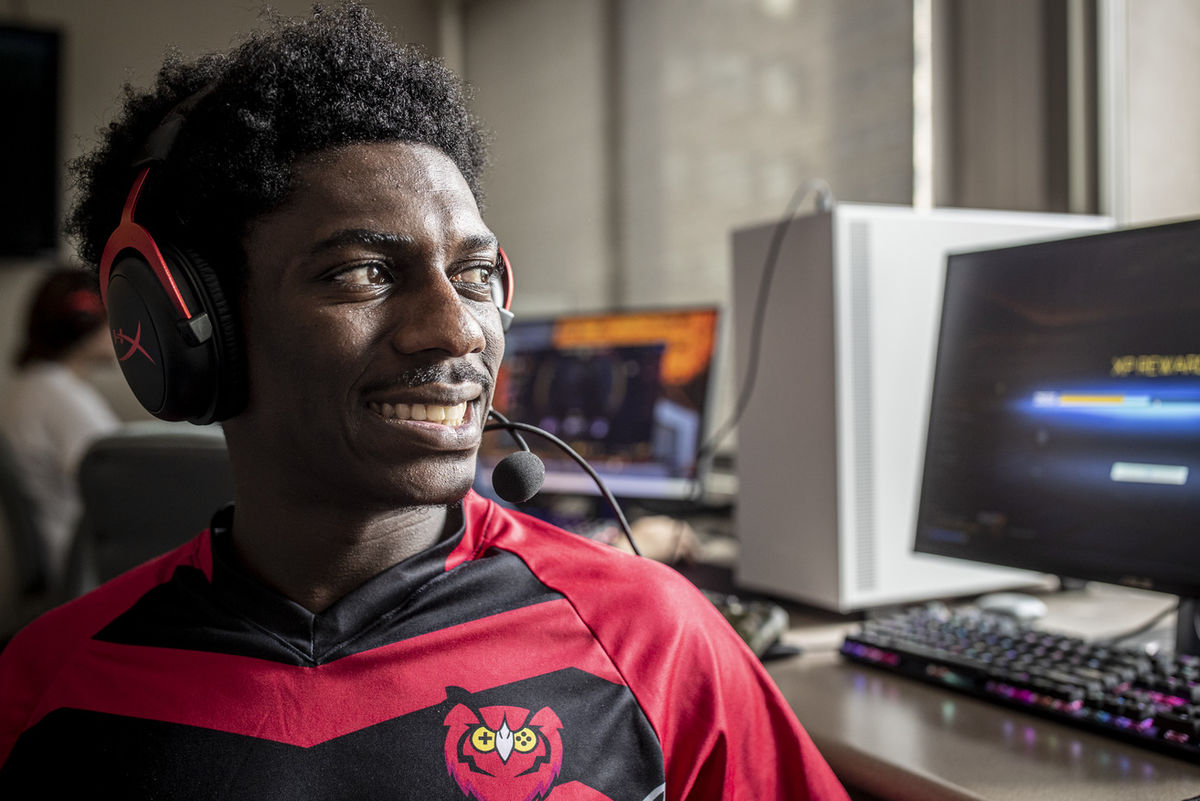 Esports represents a sports entertainment product involving management expertise related to events, merchandise, sponsorship, endorsements, marketing, technology, human resources, social media, governance, legal issues, celebrity culture and athlete well-being. (Photography by Ryan S. Brandenberg)
Esports represents a sports entertainment product involving management expertise related to events, merchandise, sponsorship, endorsements, marketing, technology, human resources, social media, governance, legal issues, celebrity culture and athlete well-being. (Photography by Ryan S. Brandenberg)
“Taking esports classes gave me a better holistic view of the industry. I learned about the analytics that went into the business side of social media,” said Cole Murray, a senior who is pursuing an esports concentration under the sport and recreation management major.
Murray has since landed an internship with Carter Pulse, an esports talent agency, from developing a relationship with his professor and the company’s CEO, Daniel Pulse, who also teaches Esports: Legal and Ethical Challenges at Temple.
“In the esports law and ethics class, we reviewed contracts, legal technicalities that go into the publishing of games, gaming competitions, signing of players and protecting your intellectual property rights,” Murray said. “The classes provided an education about esports before jumping into the industry. I feel it will be beneficial moving forward for progression in my career.”
Another student who is reaping the benefits of the new esports program is Robert Gaddy.
“As a new transfer student, I wanted to gain more knowledge on the direct impacts of esports in the business world on a more academic level,” said Gaddy, who is a second-year student majoring in sport and recreation management.
“Temple’s commitment to esports is a huge step toward the general health of esports and for personal gain.”
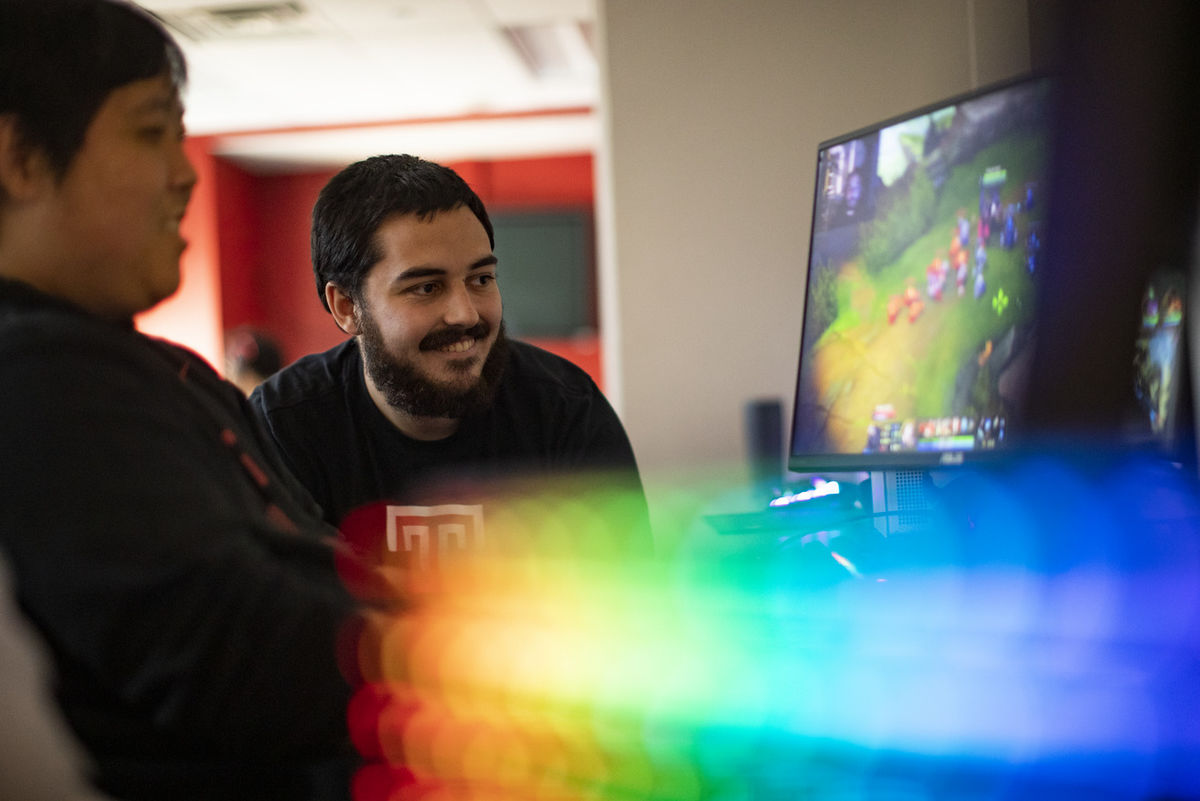 Nerd Street and Temple University have a partnership that gives the Owls’ esports teams opportunities to train and compete at Localhost in Philadelphia, a gaming venue that hosts team outings, competitive tournaments and corporate events. (Photography by Ryan S. Brandenberg)
Nerd Street and Temple University have a partnership that gives the Owls’ esports teams opportunities to train and compete at Localhost in Philadelphia, a gaming venue that hosts team outings, competitive tournaments and corporate events. (Photography by Ryan S. Brandenberg)
Chris Yi, a senior film and media arts major, has enjoyed taking the esports revenue production and industry trends courses.
“I liked that both classes frequently brought in guest speakers, who were well-versed in the esports scene from their experience working in the industry,” he said. “They were teaching us about trends and how to make money in the industry, so I felt it was insightful.”
Yi explained that Valorant, a first-person shooter game, was released while he took esports classes, so he learned from professors about compensation structure and how the gaming teams and leagues get formed.
“A lot of leagues in games would start forming years before getting released or in beta development, so it is interesting to see the amount of time it takes behind the scenes to form the esports element into a video game,” he said.
Temple University Esports Club
In addition to Temple offering an esports certificate program, it also has the Temple University Esports Club, a competitive gaming-based student organization. They have more than a dozen varsity esports teams in games, including Call of Duty, League of Legends, Rocket League and much more, that any Temple student can join.
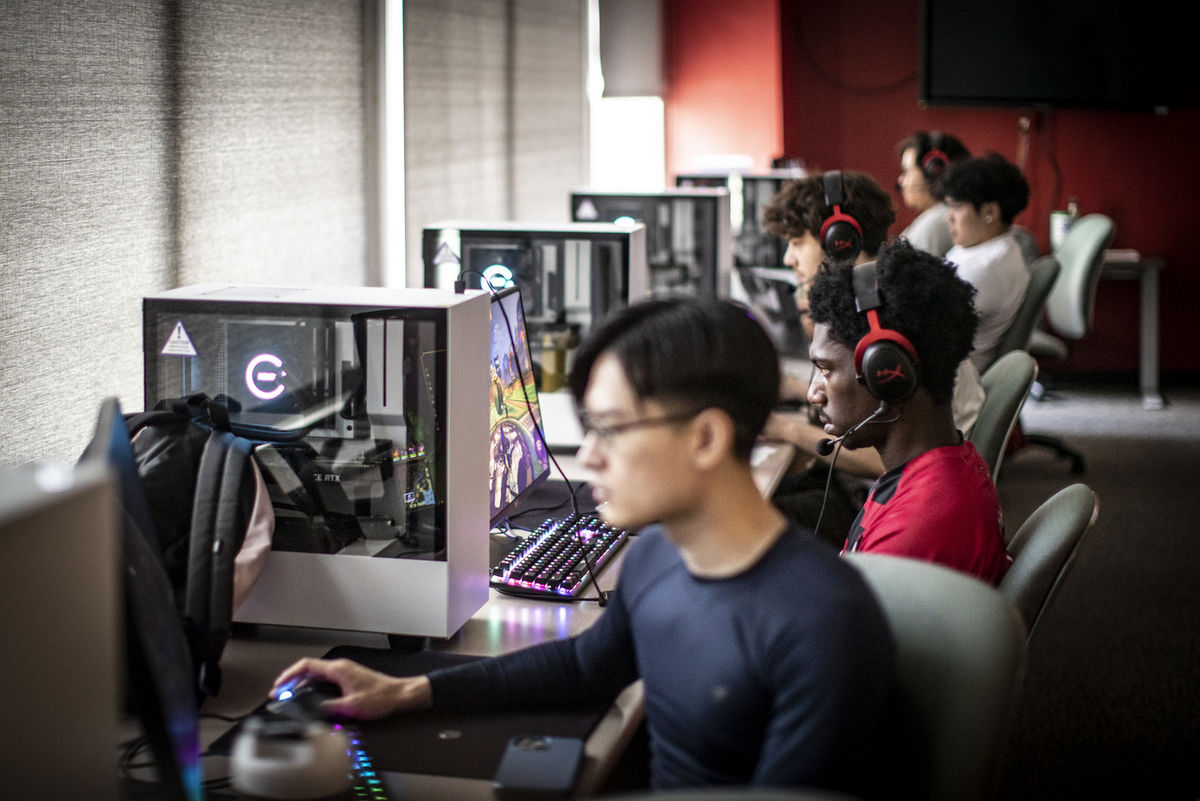 The Temple University Esports Club has teams that compete in Apex Legends, Call of Duty, Counter-Strike: Global Offensive, League of Legends, Overwatch, Rainbow Six Siege, Rocket League, Super Smash Bros. and Valorant. (Photography by Ryan S. Brandenberg)
The Temple University Esports Club has teams that compete in Apex Legends, Call of Duty, Counter-Strike: Global Offensive, League of Legends, Overwatch, Rainbow Six Siege, Rocket League, Super Smash Bros. and Valorant. (Photography by Ryan S. Brandenberg)
Many of the students in this club participate in tournaments for awards and cash prizes. Thus, like traditional sports, esports teams practice, study game film, and create and learn strategies to execute plays in gaming competitions involving professional and amateur players.
“League of Legends is a massive five vs. five multiplayer online battle arena game that I enjoy because it’s always competitive and against new people,” said Gaddy, a player on the League of Legends team. “That sense of competition drives me to improve and enjoy the game.”
The Temple esports teams practice weekly and monthly, either virtually or on the second floor of Gladfelter Hall in room 230. The Gladfelter gaming room holds 10 gaming PCs and products, including chairs, headsets, keyboards and mouses with colorful LED backlights.
The club also hosts virtual gaming and in-person events for students interested in playing more casually during the semester. Students can purchase Temple-branded esports gear like a jersey with a personalized number and Gamertag nickname.
To learn more about each program, visit Temple’s certificate of esports program and the Temple Esports Club information pages.
